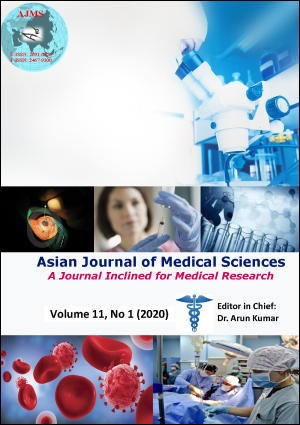Preattentive detection of auditory memory representations in accumulative drinker
Keywords:
Event-related potential, Sound, Tone, Contour tone, Mismatch negativityAbstract
Background: Chinese and English listeners did not show the same left-hemisphere (LH) lateralization as Thai listeners when making perceptual judgments of Thai tones. Although the left hemisphere is selectively employed for processing linguistic information irrespectively of acoustic cues or subtype of phonological unit, the right-hemisphere (RH) is employed for prosody-specific cues.
Aims and Objective: As both hemispheres are lateralized for speech and language, the objective of this study is to extend the investigation of how the pre-attentive processing of contour tone changes of Thai monosyllabic words in alcoholic drinkers.
Materials and Methods: Forty healthy right-handed adults participated in this study.
Results: This study found that both rising-to-falling and falling-to-rising tone changes perception elicited Mismatch Negativity (MMN) between 217-264 msec with reference to the standard-stimulus Event-Related Potentials (ERPs). The rising-to-falling and falling-to-rising tone changes elicited a strong MMN for both groups. Source localization was obtained in the Middle Temporal Gyrus (MTG) of the right hemisphere (RH) for both groups.
Conclusion: Automatic detection of changes in contour tones is a useful index of language universal auditory memory traces.
Downloads
Downloads
Published
How to Cite
Issue
Section
License
Authors who publish with this journal agree to the following terms:
- The journal holds copyright and publishes the work under a Creative Commons CC-BY-NC license that permits use, distribution and reprduction in any medium, provided the original work is properly cited and is not used for commercial purposes. The journal should be recognised as the original publisher of this work.
- Authors are able to enter into separate, additional contractual arrangements for the non-exclusive distribution of the journal's published version of the work (e.g., post it to an institutional repository or publish it in a book), with an acknowledgement of its initial publication in this journal.
- Authors are permitted and encouraged to post their work online (e.g., in institutional repositories or on their website) prior to and during the submission process, as it can lead to productive exchanges, as well as earlier and greater citation of published work (See The Effect of Open Access).




